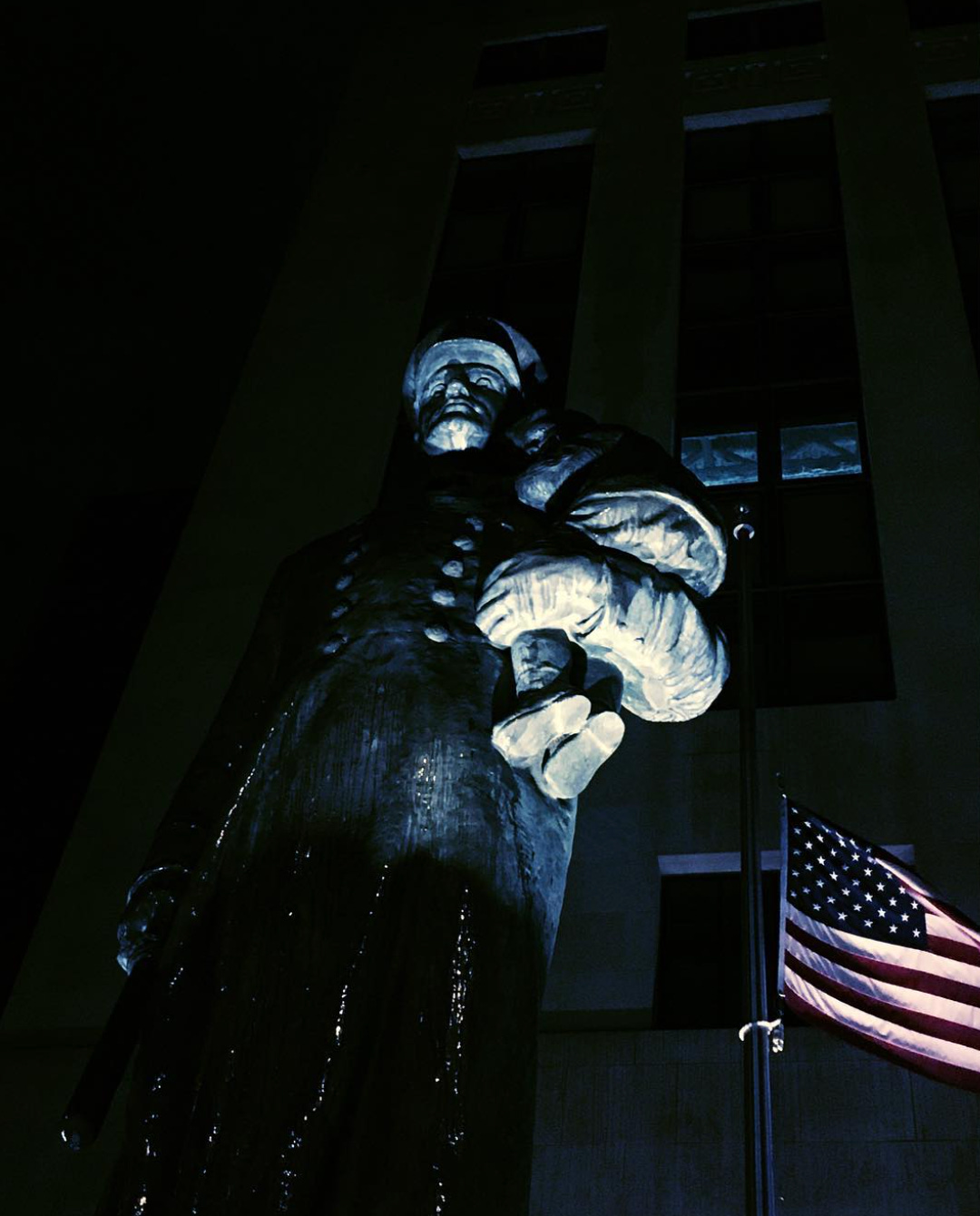July 17th marked the 10th anniversary of Eric Garner’s death at the hands of Daniel Pantaleo and the NYPD. Pantaleo had been the subject of two civil rights lawsuits prior to placing Garner in an illegal chokehold, one of which involved allegations of open-air strip searches of two Black men. Garner’s last words — “I can’t breathe” — became a rallying cry for protests against police brutality across the world. I wrote previously about the killings of Manuel “Tortuguita” Terán, Oscar Grant, Tamir Rice, and many others. I argued that each death can be merged into a single and gigantic movement for democracy in the United States. Eric Garner’s murder is one part of that movement.
Thinking about Garner’s death, I returned to the Black Panther Party’s Ten Point Program, published by Bobby Seale and Huey Newton in 1966. Point ten was essentially one giant copy-paste of the most memorable section of the Declaration of Independence:
We hold these truths to be self-evident, that all men are created equal, that they are endowed by their Creator with certain unalienable Rights, that among these are Life, Liberty and the pursuit of Happiness. — That to secure these rights, Governments are instituted among Men, deriving their just powers from the consent of the governed, That whenever any Form of Government becomes destructive of these ends, it is the Right of the People to alter or to abolish it, and to institute new Government, laying its foundation on such principles and organizing its powers in such form, as to them shall seem most likely to effect their Safety and Happiness . . . But when a long train of abuses and usurpations, pursuing invariably the same Object evinces a design to reduce them under absolute Despotism, it is their right, it is their duty, to throw off such Government, and to provide new Guards for their future security. — Such has been the patient sufferance of these Colonies; and such is now the necessity which constrains them to alter their former Systems of Government.
Where, exactly, is this country in which all people are treated as equals? Where is our so-called “improbable experiment in democracy” playing out? Is it in the Senate, where gun legislation goes to die at the same time gun violence is declared a national health emergency? Is it in the Supreme Court, an unelected body drunk with ideas of U.S. exceptionalism and endowed with the lifetime authority to interpret the Sacred Scroll based on political whims? Or the Electoral College, which has handed the presidency to a candidate who lost the popular vote twice in the last 16 years? What about the President, who is now officially exempt from all legal culpability? Or can democracy be found in America’s 18,000 unique state and local police departments, whose officers kill almost three people each day?
As early 20th-century critics understood, the Constitution's “endless veto points [make] it nearly impossible for the poor to use elections to better their lot, while business elites [wield] outsized power at virtually every level of government.” Created during a time when democracy was synonymous with anarchy and the “tyranny of a majority,” the Framers’ creation continues to ensure that social and political rights are denied to millions of Americans. The undemocratic Constitution is detrimental to our health and general well-being; it should be considered illegitimate on that basis.
Throughout his career, Martin Luther King Jr. channeled the poetry of his close friend and confidant, Langston Hughes, who knew the trials and tribulations of life in America as well as anyone else. Hughes’ most famous poem, Let America Be America Again, was published when King was seven years old, long before he diagnosed the U.S. with a slow “spiritual death” and worried aloud that the movement for universal and equal rights had reached the limits of the current Constitution.
“I am the poor white,” wrote Hughes, “fooled and pushed apart.”
I am the Negro bearing slavery’s scars.
I am the red man driven from the land,
I am the immigrant clutching the hope I seek —
And finding only the same old stupid plan
Of dog eat dog, of mighty crush the weak.
But previous periods of democratic struggle provided Hughes with a glimmer of hope:
O, let America be America again —
The land that never has been yet —
And yet must be — the land where every man is free.
The land that’s mine — the poor man’s, Indian’s, Negro’s, ME —
Who made America,
Whose sweat and blood, whose faith and pain,
Whose hand at the foundry, whose plow in the rain,
Must bring back our mighty dream again
America has never been a country where everyone is created equal and recognized as bearers of unalienable rights, including the right to life, liberty, and the pursuit of happiness. Democracy will not solve everything. However, only through democracy can we begin to confront the country’s most pressing problems, including the murder of people like Eric Garner by the police. After Garner’s death, many protestors chanted, “I can’t breathe,” and held signs calling for the defunding or outright abolition of the police. The next time someone is killed by the police and a march ensues, I’ll keep my eyes open for a sign that reads, “I want a democratic constitution.”




